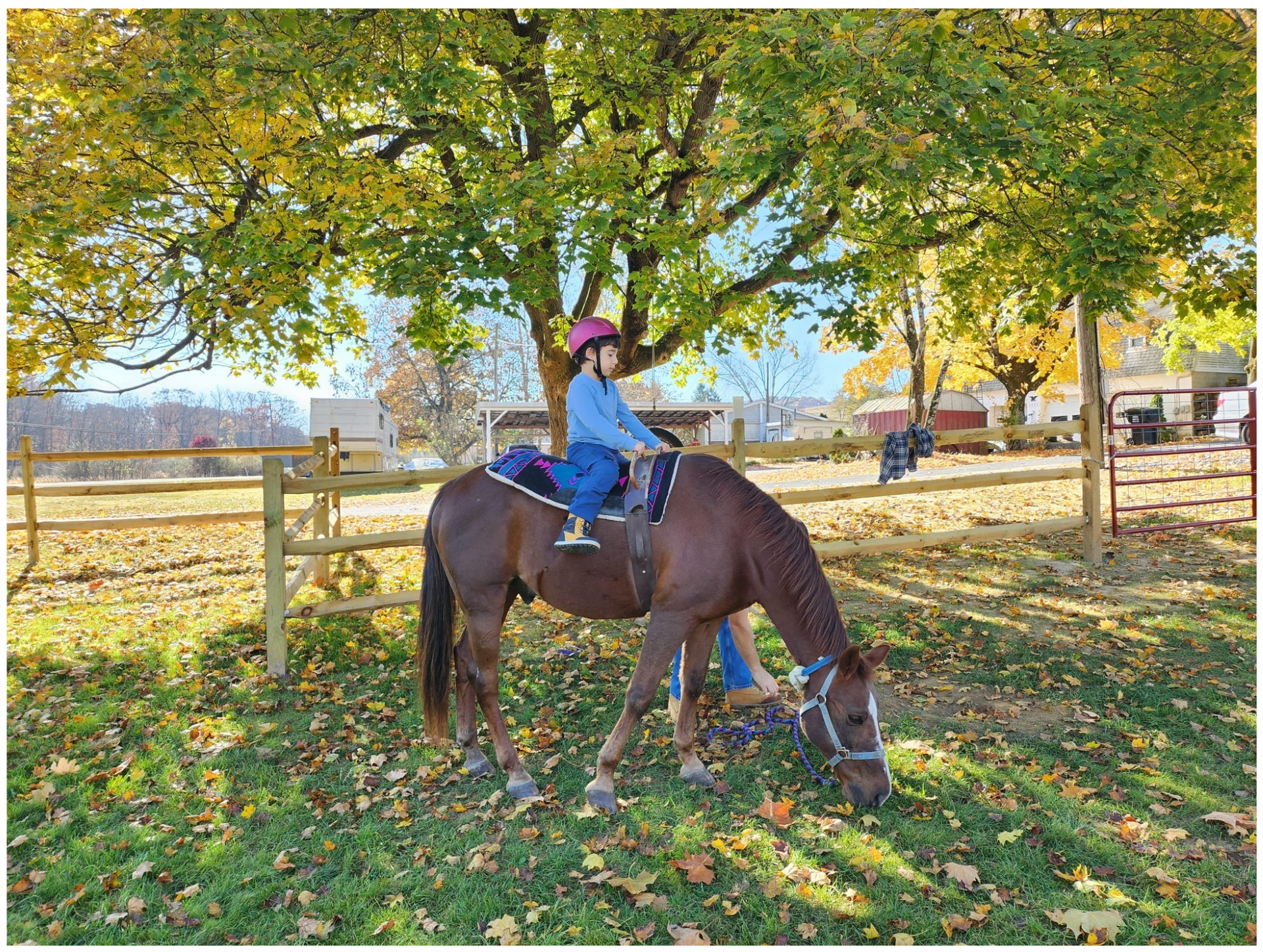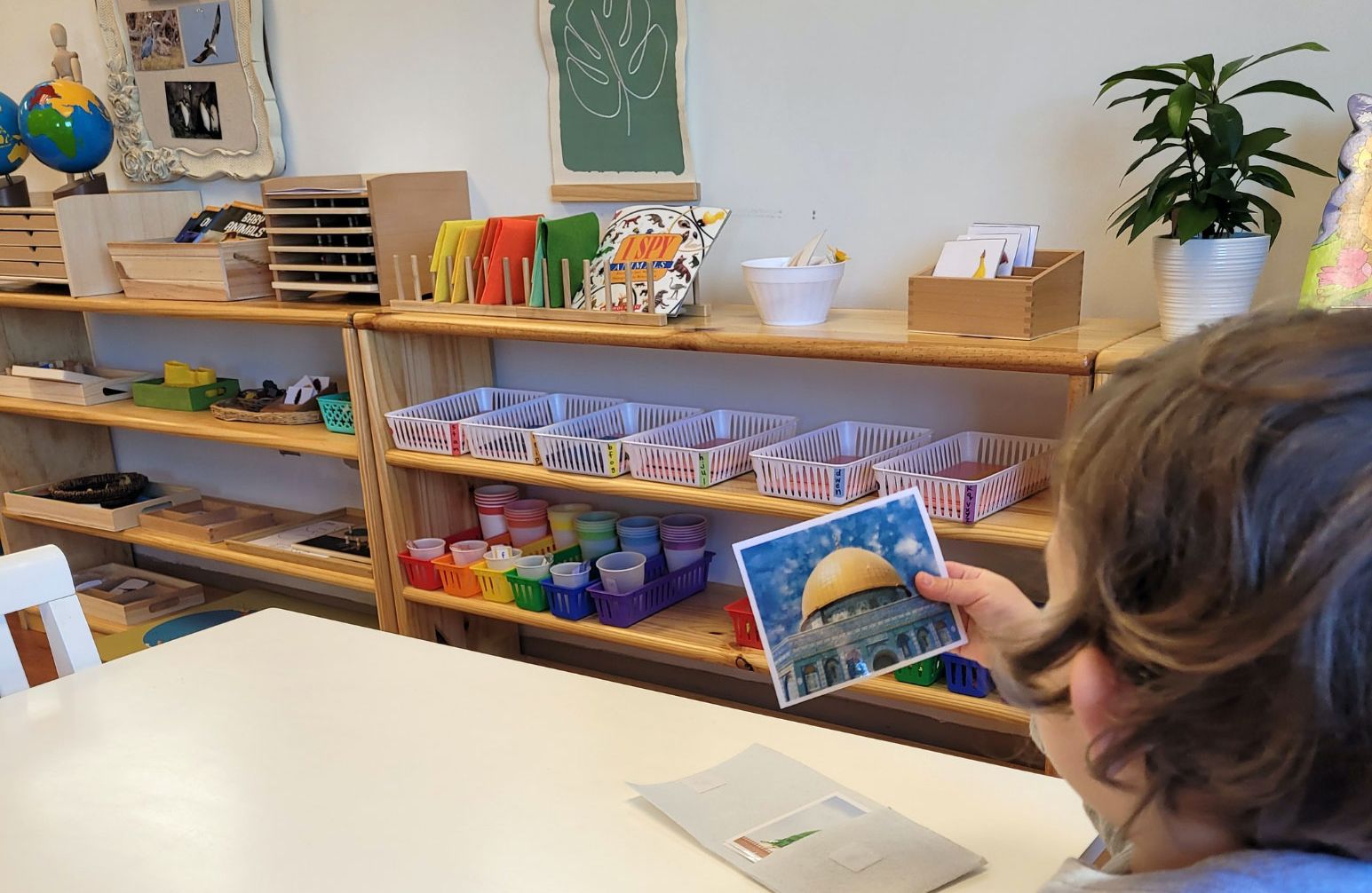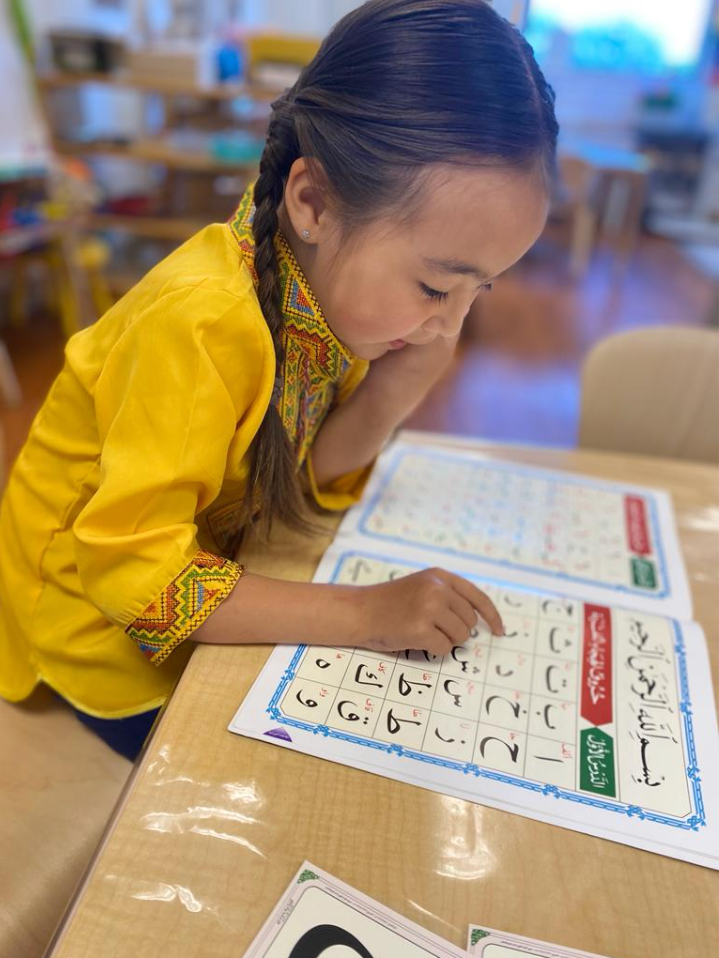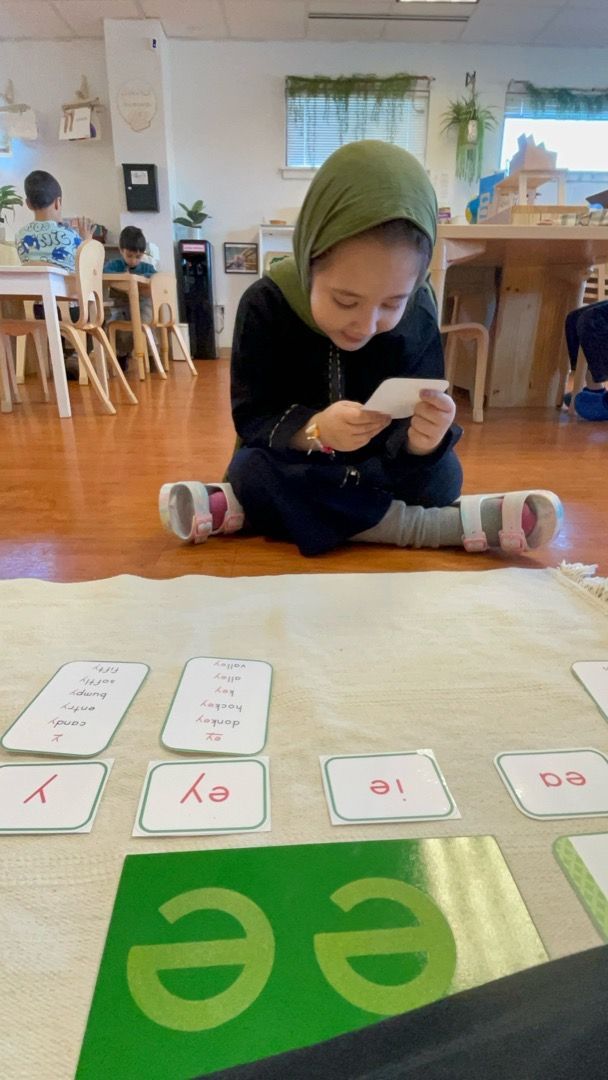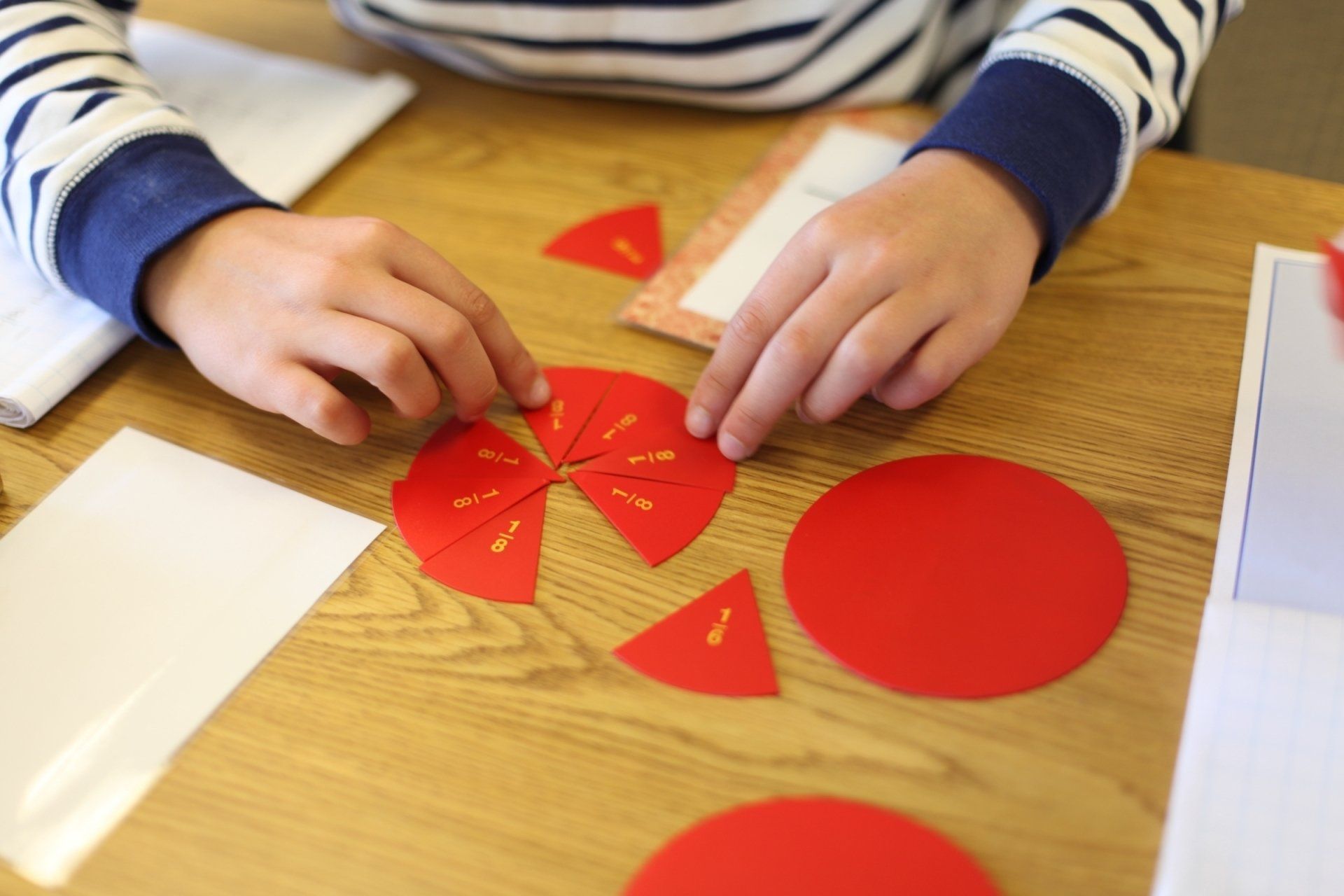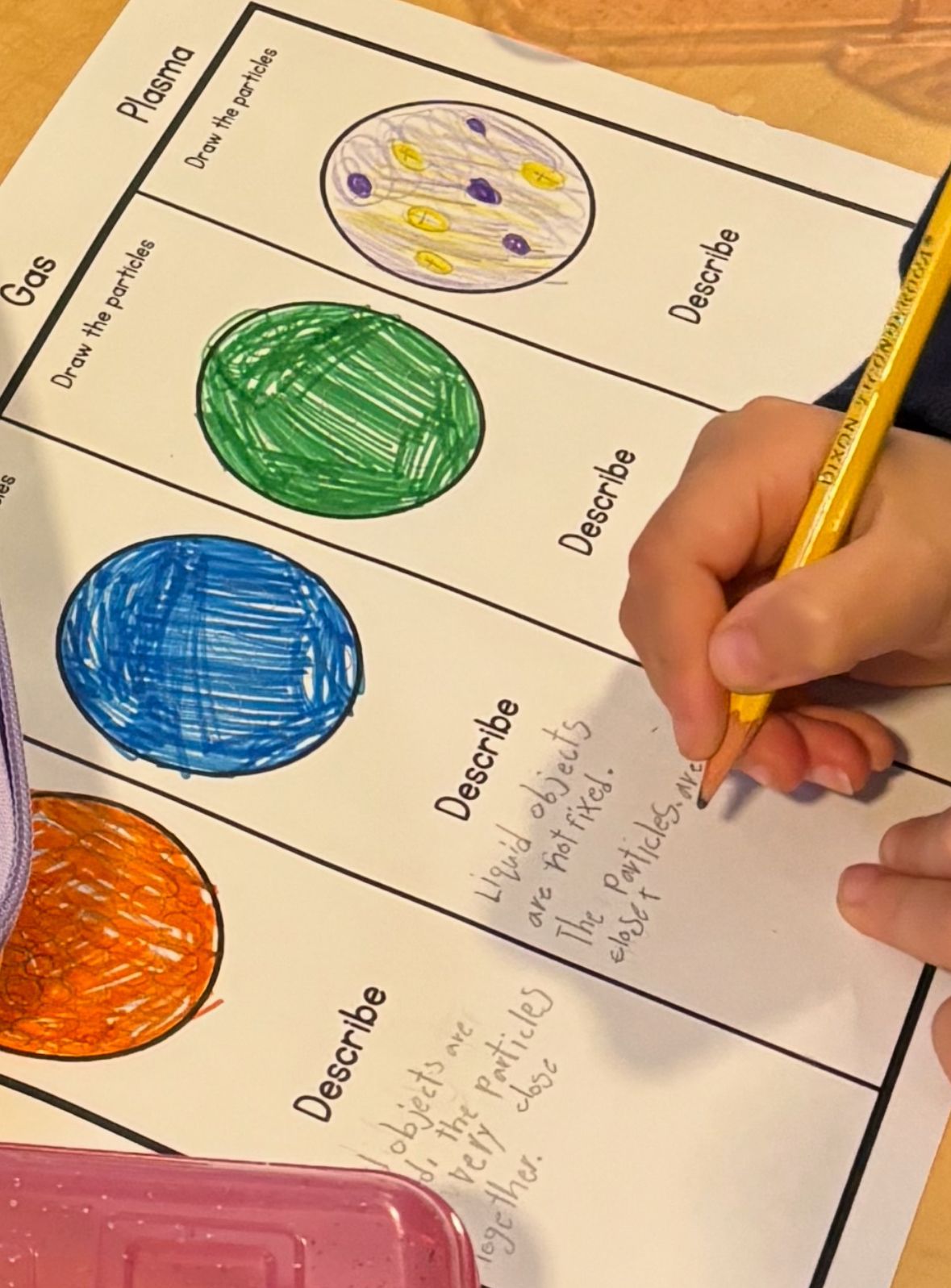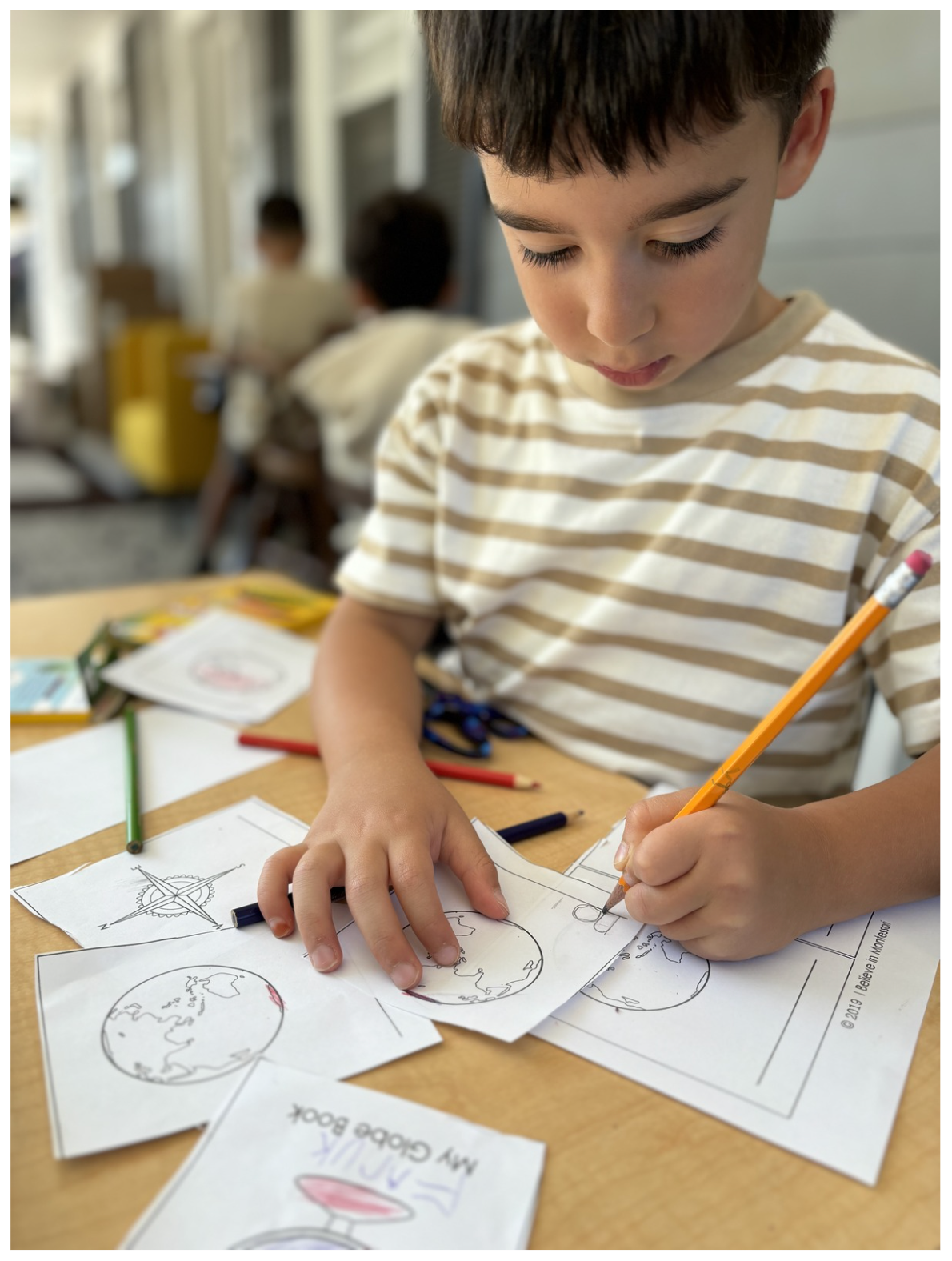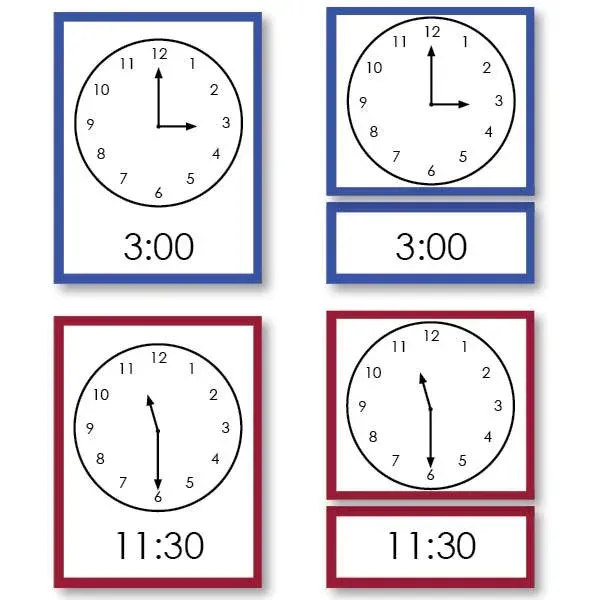Lower Elementary
6 - 9 years / Grades 1-3

The elementary-aged child wants to know everything about everything! They have a natural desire to explore, but rather than offering a collection of facts, a Montessori elementary education offers a vision of interrelated knowledge and a love of learning. This is the holistic nature of God's creation.
As in preschool, the lower elementary teacher presents the work through concrete, hands-on materials that engage the child. It is also the teacher’s role to help children develop their academic potential to the highest level possible. The prepared environment fosters peace, acceptance for others and independence in a highly motivating atmosphere. This is an extremely successful combination that prepares the child for the upper elementary classroom or any other learning situation.
Each child is provided with a work plan. The plan provides a direction for the child and allows the teacher to guide him in the concepts he needs to review or learn. This also allows the classroom to follow the Montessori curriculum while continuing to meet (and often exceed) the standards set the state. The work plan and environment may be altered based on each child’s ability to accept direction, his independence and other special needs.
For new students joining LVMS at this level, many enjoy the freedom and responsibility given in the classroom. Students learn that teachers are not the sole sources of information and that they can depend on one another as a community of learners. Students who have mastered concepts are able to teach those who may still be practicing.
The classroom is organized for the child instead of the adult. From the first day of school, the children meet and discuss guidelines for class rules. Children in the classroom have work responsibilities, help each other and allow the class to run efficiently. The teacher acts as a role model, mentor and guide. She provides lessons that capture the children’s imagination and interest. She also helps the children when conflicts arise, calls meetings to discuss problems with the class in an open forum and communicates the children’s progress to their families.
The teacher gives the children freedom and choice as they exhibit that they are ready for them. Privileges are earned independently, although all children start out with the same rights. If a particular child is unable to handle certain freedoms or responsibilities, the teacher maintains the right to help the child to be successful and safe by taking those away until the child is able to handle himself.
Each child keeps his work in his own record books, which usually are notebooks in which each subject’s work is recorded. The child’s record books and papers are stored neatly in a storage space or cubby. Although children do not have their own assigned work spots, they do have assigned areas in which to keep their belongings. Materials in the class (such as supplies) are for everyone to use and share. This allows the children the opportunity to learn how to be patient and cooperate with others.
"Integrating an Islamic worldview from the earliest years, alongside not stunting each of our children’s respective developmental potentials, are my family’s two greatest reasons for choosing LVMS. We pray LVMS will continue growing healthily to serve its part in reclaiming for Muslims their place as pioneers of education and holistic living."




